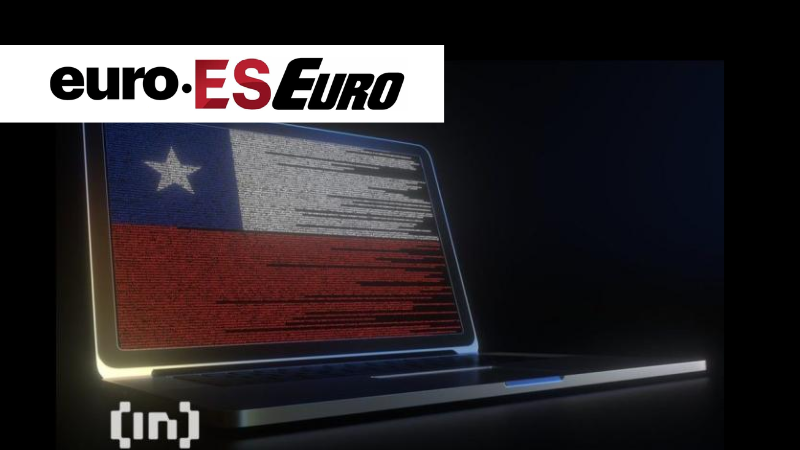
Lower carbon footprint in Chile thanks to blockchain technology
Within a few weeks, Chile will begin to mark one of its historical pages. Thanks to the use of technology blockchain to solve one of the most compelling problems on the world agenda: the carbon footprint.
In its objective of contributing to the reduction of the environmental indicator, it will debut in the issuance of digitized carbon credits.
For its part, the National Electricity Coordinator has worked on a model that allows certifying the use of clean energy throughout the Chilean territory. Its name is RENOVA and, according to the agency that operates the National Electric System, it seeks, with blockchain as an ally, detail the volume of greenhouse gases emitted directly or indirectly by human actions.
Issuance of Carbon Credits thanks to blockchain technology in Chile
This announcement could well mean a response to the interests of the new youth in terms of environmental protection. The milestone on which Chile will experience is rightly presented as a unique initiative of its kind.
They will seek to reduce the carbon footprint by issuing digitized bonds, Movistar Plus will offset its carbon footprint in this way. To that end, it was the union of the British company eGreen and the Chilean The Real Eco State.
The first challenge is to get to the goal of 100,000 high-quality bonds by 2024. The Real Eco State is a company that focuses its attention on the sale of virgin lots in Chilean Patagonia. Prepare lots of about five hectares and markets them under the Conservation Easement.
This means that the buyer cannot alter his property, but must keep it unchanged in perpetuity. The provision with which the firm dedicated to the real estate business works includes flora, fauna and funga.
Ultimately, the search is to preserve the Chilean natural wonders. To this end, WeConserv Foundation will also make its contribution, which has vast experience from caring for some 6,000 hectares in the area. NASA and the foundation will use their knowledge and resources to develop carbon credits that help reduce greenhouse gas emissions. The issue will materialize on the eGreen platform.
Thanks to these bonds, it will be possible to have real-time information on the carbon captured and stored. Something that the promoters of the project understand, will motivate people to join in having a portion of natural heritage.
The owners will have ownership of the bonds, which also will have the mission of generating income and profitsusing this technology blockchain in Chile. Part of the profits will go to further studies related to forest conservation and promote a kind of virtuous circuit.
Felipe Escalona, founder and CEO of The Real Eco State, has summarized what in his opinion are the benefits of the initiative.
“Our mission is to make conservation more accessible to everyone, and to that end we are developing new solutions that can help mitigate the climate crisis. We believe that there is a unique opportunity to create a profitable business that is also good for the environment. That is why we are working to develop a new form of private conservation that allows people to generate income from their land without having to buy thousands of hectares.”
Use clean energy thanks to blockchain
Another contribution that is fundamental when it comes to reducing the carbon footprint is the adoption of renewable energy. It is possible thanks to a Chilean traceability system that certifies the use of clean energy. The RENOVA model, promoted by the Coordinador Eléctrico Nacional of Chile in 2019, is in charge of making a balance on the electricity injected and consumed by the electrical system. It is another ecological proposal.
It also provides the calculation of the emission factor for each consumer and the residual for the system as a whole. These data can be accessed by generators and energy consumers in Chile. Here, again, technology plays a leading role blockchain.
Juan Pablo Ávalos, deputy manager of Programming and Economic Analysis of the Market Management of the National Electricity Coordinator, summarizes the objective they pursue.
“Our goal is to guarantee certified traceability between the generation and consumption of renewable energy.”
With this tool it is possible to measure the entire process, from production to consumption of electricity from renewable sources. That circuit can be measured, recorded, verified and certified. With this information, what is called an “energy bag” is assembled. A kind of container with tokens that are equivalent to 1 MWh of renewable energy that can be traded on the market.
Ávalos explains it.
“Some six million tokens are created per month, each of which is equivalent to one MWh of energy, and data such as generation time, type of renewable energy and owner are added, that is, the metadata necessary to celebrate the contract. ”.
They are handled as digital pieces organized in the wallets or purses of the generating companies. They grant traceability between owners and ensure immutability. The operations carried out entail the transfer of ownership of the renewable energy attributes.
They are taken out of the wallet from the generator to move them to the wallet of the energy consumer. There are some 70 companies in Chile that use this prototype to acquire green energy and lower the emission of greenhouse gases using the blockchain technology.
-
Source: euro.eseuro.com

